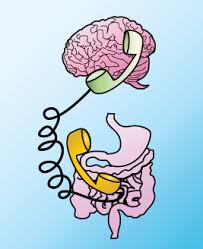Disfunctions of the gut-brain axis are increasingly emerging as an important factor in several pathologies, including neurodegenerative ones. These alterations are able to act on peripheral and central nervous system by disrupting physiological, immune and inflammatory. In particular, functional alterations in the gut have been linked, in the past, to the pathogenesis and prevalence of neurodegenerative conditions such as Parkinson’s disease (PD), in which misfolded alpha-synuclein accumulates in the brain resulting, eventually, in the neuronal loss at the substantia nigra that is the basis of the motor impairment of this condition. Rather curiously, gastrointestinal alterations represent a quite common and often early symptom in PD, while the prevalence of this disease has been reported to be lower in patients that underwent gut surgical treatments such as partial vagotomy (the partial severing of a portion of the vagal nerve that innervates the gastroenteric tube, performed in the management of peptic ulcer); this led to the yet controversial theory that PD might harbour its seeds in the gut, before climbing its way up to the brain by propagating misfolded alpha-synuclein aggregates through the vagal nerve, in a sort of twisted “telephone game”.
With the optic of investigating how gut influences the pathogenesis of PD, Viviane Labrie’s team started working on a rather peculiar part of our digestive tract, the appendix, often deemed as a useless part of our intestine, that might instead be involved in gut immune functions and in maintaining a balanced gut flora. What Labrie’s team found is that PD prevalence is 20% lower in people that underwent appendicectomy -an advantage that, however, seemed to be confined to the rural cohort of the sample (suggesting that the treatment might be more beneficial in cases that are caused by environmental triggers). Quite importantly, the researchers found presence of a PD-like misfolded alpha-synuclein in almost all of 48 human appendices from healthy subjects they analysed. Of course additional and deeper investigations will be required to establish whether PD pathogenesis lies hidden somewhere inside our digestive tract, but this evidence represents a rather intereting starting point.

